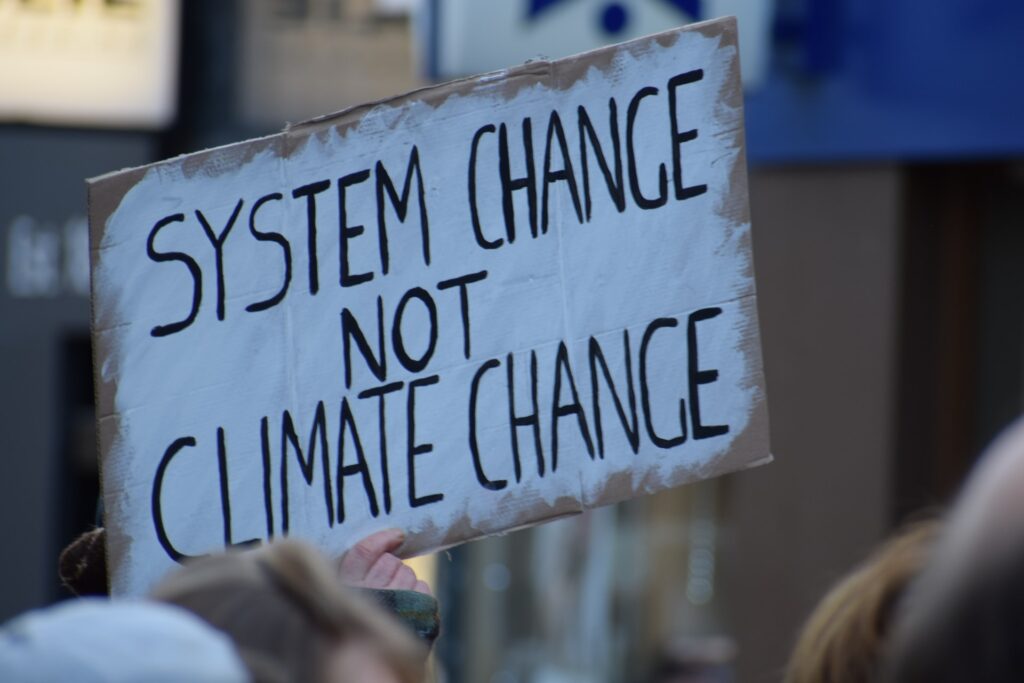This is the first edition of the new Carbon Switch newsletter, written by me, Michael Thomas 👋
In this first edition, I want to share a bit about what you can expect from this newsletter and make the argument for “both/and climate action.”
But before diving in I want to share some exciting news:
A couple weeks ago Vox published a YouTube video featuring me and my research at Carbon Switch on heat pumps. It already has more than one million views.
I’ve spent the last year trying to increase awareness for this boring, but important climate solution. To be able to introduce heat pumps to one of the biggest channels on YouTube was an incredible honor.
An introduction to “both/and climate action”
Let me ask you a question that you’ve probably thought about a lot — either consciously or subconsciously.
To prevent catastrophic climate change, is it more effective to reduce your personal carbon footprint or focus on collective action?
I’m not sure there’s a question that divides the climate community more.
One of you may be drafting up an email to me right now explaining that the concept of a carbon footprint is a sham designed by Big Oil. “We have to regulate fossil fuel companies, not blame ourselves!”
Or maybe you just read the latest news about Senator Joe Manchin and the grim outlook for the reconciliation bill. “What’s the point of trying to pass climate policy if our politics are so gridlocked? We need to focus on what we can control.”
I’ve wrestled with this question for years. But lately I’ve come to see the question as silly and distracting. We, of course, need both individual and collective action.
We should all try to electrify our homes and bring our carbon footprint to zero and we should all do everything we can to pass policy in our cities, states, and country to encourage others to do the same.
But I would even go further and argue that individual and collective action are one in the same. They are two sides of the same coin.
Everyone’s contagious and change is a river
In a recent AMA podcast, Ezra Klein shared two ideas that I can’t stop thinking about:
First, he argued that every individual’s habits and beliefs are contagious. Whenever we do, say, or believe something we infect the people around us with our beliefs and habits.
I stopped eating meat because my Dad stopped eating meat. Then I went vegan when I met my partner Hannah. Both of them infected me. And now I’ll go on to infect those around me (hopefully one of you!).
If COVID-19 taught us anything it is that one infection here or there doesn’t feel like much to any individual, but it can completely change a society given a high viral coefficient and/or time.
The second thing Klein argued is that social change is a river. People often talk about politics being upstream of policy. But further upstream still is culture.
Ok that’s a little wonky so here’s another way to put it: in a representative democracy you can’t pass policy unless the people — more specifically the people that actually vote — want it. There are of course distortions at the margin, but over the long-run, democracies prove responsive to voters.
In other words cultural change is a pre-requisite to policy change. And it’s our individual actions that change that culture in the first place.
That’s what I mean when I say individual and collective action are two sides of the same coin.
What you can expect in this newsletter
This idea, that there is no seperation between individual and collective action — what I’ll refer to as “Both/and climate action” — will be a central theme in this newsletter.
Next week, for example, I’m going to write about why heat pumps are one of the most effective ways to cut your carbon footprint. And then I’m going to share a story about a state that has passed some of the best electrification policy in the country (and why we should all encourage our state legislators to follow suit).
In the meantime I’d love to hear from you.
What do you think about this idea of “Both/and climate action”?
How have your beliefs and habits changed over time? What do you think you can attribute that change to?
If you made it this far, thank you! And see you next week 👋
